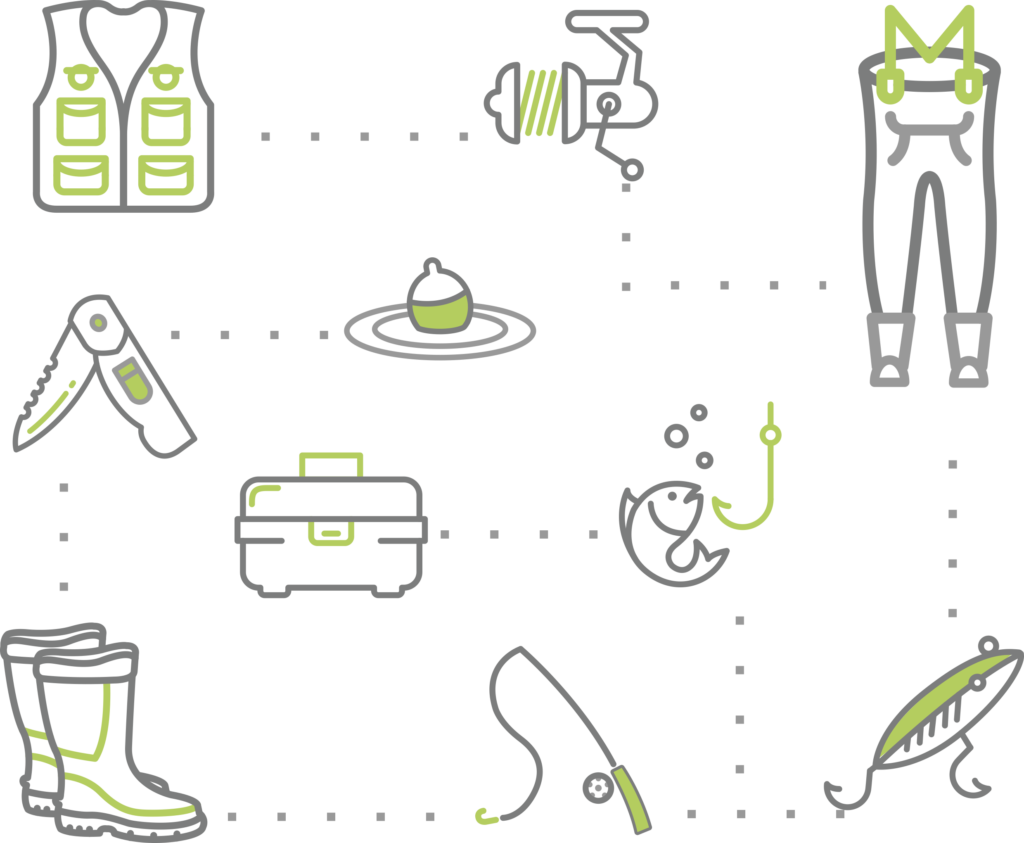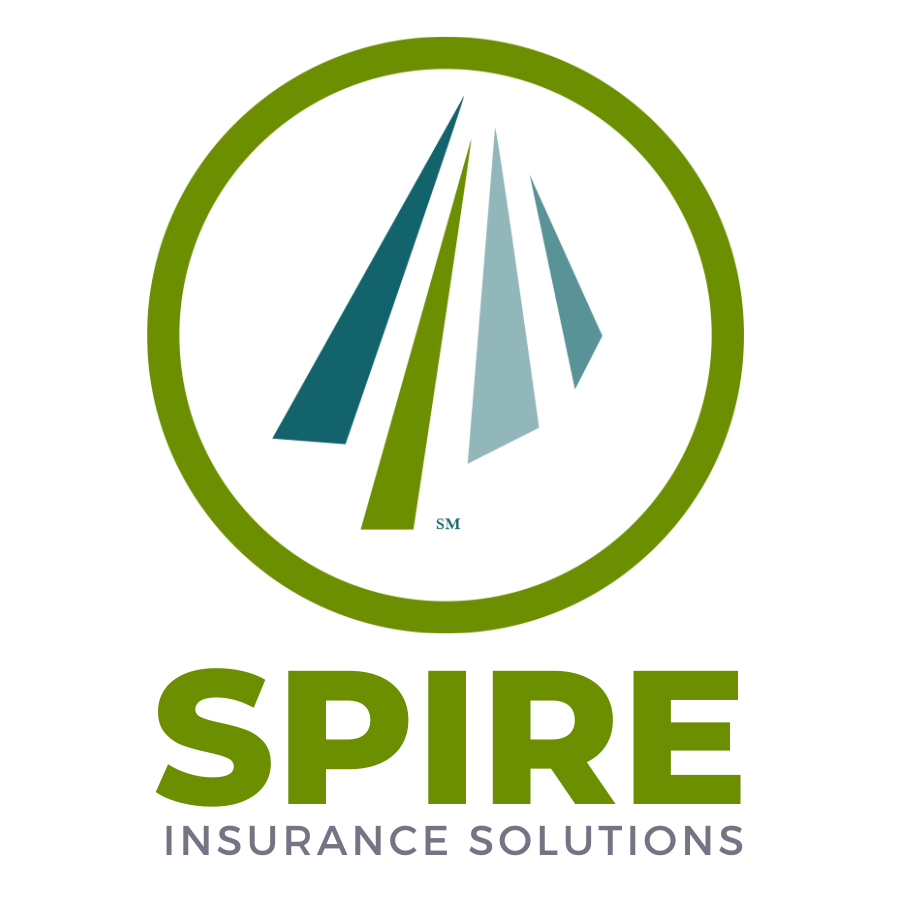Or call (800) 686-8664
insurance for Guides & Outfitters

tailored coverage for:
- Fishing Guides
- Hunting Guides
- Boat/Canoe Rental
- Hunting Preserves
- Rod and Gun Clubs
- Sportsmen’s Clubs
- Rifle and Pistol Ranges
- Archery Ranges
- Wildlife Conservation Clubs
- Special Events
- And More!
Coverage Highlights
- Fishing and Hunting Equipment
- Boats, Motors, Trailers
- Fishing, Hunting, Camping Supplies
- Personal Property of Others
- Business Income
- Property In Transit
- Employee Theft
- Emergency Vacating Expense
- Equipment Breakdown
- General Liability
- Professional Liability – Professional services in teaching gun safety or other courses
- Sports Participant Legal Liability – Covers hunting, shooting, archery if a participant sues (despite having signed a waiver)
- Medical Payments
- Abuse and Molestation
- Employment Practices Liability
- Business Auto
- Not-For-Profit Directors & Officers
- Workers Compensation
- Commercial Umbrella
Share This Page:
a reel simple Solution
One of the most important things you do is to make sure your clients enjoy a safe and unique outdoor experience. Whether you’re an outdoor guide, or equipment outfitter, it’s crucial to make sure your business is properly protected.
At Spire Insurance Solutions, we have unique programs tailored to the outdoor adventure industry. Read below to learn more, or get in touch with us today to start on the path to better protection.
This insurance guide will help you:
- Understand how insurance companies determine premiums specifically for businesses catering to outdoor sport and adventures.
- Learn about recommended insurance coverages for your business.
- Note typical exclusions to watch out for.
- Learn what factors influence the amount of coverage you need.
When it comes to your guide business, there are several coverages you should consider to protect yourself, your clients, and your assets. These coverages include:
-
General Liability Insurance: This protects you from liability claims related to bodily injury, property damage, or personal injury that may occur during your fishing or hunting trips. It also provides financial protection and covers legal expenses if you are sued.
-
Professional Liability Insurance: Also known as errors and omissions insurance; professional liability insurance protects you in case a client alleges that you provided inadequate or negligent services. It also covers legal defense costs and potential damages.
-
Commercial Property Insurance: This coverage protects your business property, including your office, equipment, gear and more from damage or loss due to events like fire, theft, vandalism, or natural disasters. It can also help you recover and continue your operations in case of property-related incidents.
-
Commercial Auto Insurance: If you use vehicles for your fishing or hunting guide business, commercial auto insurance is essential. It covers your vehicles in case of accidents, property damage, or injuries that occur while operating the vehicles for business purposes.
-
Workers’ Compensation Insurance: If you have employees working for your fishing or hunting guide business, workers’ compensation insurance is typically required by law. It can provide coverage for medical expenses and lost wages in case an employee is injured or becomes ill while on the job.
-
Equipment Insurance: This coverage protects your valuable equipment, such as fishing gear, hunting gear, boats, and trailers, from damage, theft, or loss. It ensures that you can replace or repair your equipment without significant financial burden.
-
Umbrella Insurance: Umbrella insurance provides an extra layer of liability protection beyond the limits of your other insurance policies. If a claim settlement exceeds the limits you purchased on your normal policy, an umbrella policy can step in and pay the excess.
It’s important to assess your specific risks and consult with an insurance professional who understands the unique needs of fishing and hunting guide businesses. They can help tailor a comprehensive insurance package that suits your business requirements and provides adequate coverage.
When it comes to your outdoor outfitter business, there are several key coverages you should consider to protect yourself, your clients, and your assets. These coverages include:
-
General Liability Insurance: This coverage protects you from liability claims related to bodily injury, property damage, or personal injury that may occur during outdoor activities. It can also provide financial protection and cover legal expenses if you are sued.
-
Professional Liability Insurance: Also known as errors and omissions insurance, professional liability insurance protects you in case a client alleges that you provided inadequate or negligent services. It covers legal defense costs and potential damages.
-
Commercial Property Insurance: This coverage protects your business property, including your office, equipment, gear, and facilities, from damage or loss due to events like fire, theft, vandalism, or natural disasters. It ensures that you can recover and continue your operations in case of property-related incidents.
-
Commercial Auto Insurance: If you use vehicles for your outdoor outfitter business, commercial auto insurance is essential. It covers your vehicles in case of accidents, property damage, or injuries that occur while operating the vehicles for business purposes.
-
Workers’ Compensation Insurance: If you have employees working for your outdoor outfitter business, workers’ compensation insurance is typically required by law. It provides coverage for medical expenses and lost wages in case an employee is injured or becomes ill while on the job.
-
Equipment Insurance: This coverage protects your valuable equipment, such as camping gear, hiking gear, boats, bikes, or any other outdoor equipment, from damage, theft, or loss. It ensures that you can replace or repair your equipment without significant financial burden.
-
Umbrella Insurance: Umbrella insurance provides an extra layer of liability protection beyond the limits of your other insurance policies. It is particularly useful when faced with large lawsuits or claims that exceed the coverage limits of your primary policies.
By carefully assessing your specific risks and working with an experienced insurance professional, you can customize an insurance package that meets the unique needs of your outdoor outfitter business. They can guide you through the process, help you understand your coverage options, and ensure that you have adequate protection for your business operations.can
The amount of coverage you should purchase for your outdoor outfitter business is influenced by several key factors. These factors include:
Nature of Your Business: Consider the nature of your outdoor outfitter business, including the activities you offer and the level of risk involved. If you engage in high-risk activities such as extreme sports or wilderness expeditions, you may need higher coverage limits to adequately protect against potential liabilities.
Size and Scope of Operations: The size and scope of your business operations play a role in determining the amount of coverage you need. If you have a large operation with multiple guides, employees, and extensive equipment, you may require higher coverage limits to account for the increased exposure to risks and potential liabilities.
Value of Assets: Assess the value of your business assets, including equipment, vehicles, facilities, and inventory. Your coverage limits should be sufficient to cover the replacement or repair costs of these assets in case of damage, loss, or theft.
Number of Clients: Consider the number of clients you serve and the potential risks associated with their participation in outdoor activities. More clients generally mean a higher exposure to liability risks. Ensure your coverage limits are adequate to protect against potential claims or lawsuits resulting from client injuries or property damage.
Contractual Obligations: If you enter into contracts or agreements with clients, landowners, or other entities, review the insurance requirements specified in those contracts. Ensure your coverage meets or exceeds the minimum insurance requirements outlined in your contracts.
Regulatory Requirements: Familiarize yourself with any legal or regulatory requirements specific to your industry or location. Some jurisdictions may have minimum insurance coverage requirements for outdoor outfitter businesses. Ensure that you meet these requirements to remain compliant.
Risk Tolerance: Consider your own risk tolerance as a business owner. Some owners may prefer to carry higher coverage limits to mitigate potential risks and protect their business assets, while others may choose to carry lower coverage limits based on their risk assessment and financial considerations. It’s important to strike a balance that aligns with your risk tolerance and financial capabilities.
It’s recommended to consult with an experienced insurance professional who specializes in outdoor outfitter insurance. They can assess your unique business needs, evaluate your risks, and provide guidance on the appropriate coverage amounts for your specific situation.
When considering insurance coverage for your outdoor outfitter business, it’s crucial to be aware of potential exclusions that may limit or exclude certain types of coverage. While specific exclusions can vary depending on the insurance policy and provider, here are some common exclusions to be mindful of:
Intentional Acts: Most insurance policies exclude coverage for intentional acts or deliberate harm caused by you or your employees. This means that if an incident arises from intentional actions, the insurance policy may not provide coverage.
Professional Errors or Negligence: Standard liability policies may exclude coverage for professional errors, mistakes, or negligence. If your business involves providing professional services such as guiding, instruction, or advice, you may need to consider specialized professional liability coverage to protect against such claims.
Employee Injuries: Workers’ compensation insurance typically covers employee injuries and illnesses; however, it’s essential to review the policy exclusions and understand any limitations or specific circumstances where coverage may not apply.
Pollution and Environmental Damage: Pollution and environmental damage exclusions are common in general liability policies. If your outdoor activities involve the use of substances or equipment that may cause pollution or environmental harm, it’s important to evaluate whether you need separate pollution liability coverage.
Motor Vehicle Liability: If your outfitter business involves the use of vehicles for transportation or guided tours, be aware of any exclusions or limitations related to motor vehicle liability coverage. Some policies may have restrictions on certain types of vehicles or activities, so ensure that your coverage adequately addresses your specific needs.
Professional Liability: General liability policies may exclude coverage for professional services or advice. If your outdoor outfitter business provides specialized services, such as training or coaching, consider obtaining professional liability (errors and omissions) insurance to protect against claims related to professional negligence or mistakes.
Employment Practices: Standard liability policies often exclude coverage for employment-related claims, such as discrimination, harassment, or wrongful termination. To protect against these risks, consider obtaining employment practices liability insurance (EPLI).
It’s crucial to carefully review the terms, conditions, and exclusions of your insurance policy. Work closely with an experienced insurance professional who understands the unique risks and requirements of outdoor outfitter businesses. They can help you identify any potential exclusions and recommend appropriate coverage options to fill potential gaps in protection.
Premiums for outdoor outfitters and fishing/hunting guides are calculated based on several factors that insurance companies take into consideration. While specific calculations can vary between insurance providers, here are some common factors that influence premium calculations:
Nature of Activities: The types of activities you offer as an outfitter or guide play a significant role in premium calculations. Insurance companies assess the risk associated with activities such as fishing, hunting, camping, hiking, and other outdoor pursuits. Higher-risk activities may result in higher premiums.
Business Size and Revenue: The size and revenue of your outdoor outfitting or guiding business can impact the premiums. Insurance companies consider factors like the number of guides or employees, annual revenue, and the size of the operation to assess the risk exposure and determine the premium.
Coverage Limits: The coverage limits you choose for various insurance policies also affect the premiums. Higher coverage limits generally result in higher premiums since they provide greater protection against potential claims or losses.
Claims History: Insurance companies review your claims history to assess the likelihood of future claims. If your business has a history of frequent claims or significant losses, it may lead to higher premiums.
Safety Practices and Risk Management: Your approach to safety practices and risk management can impact the premiums. Insurance companies often offer discounts or incentives to businesses that demonstrate effective risk management measures, such as safety training programs, equipment maintenance protocols, and proper client supervision.
Location: The geographic location of your outdoor outfitting or guiding business can affect premium calculations. Factors such as local weather patterns, terrain, and the prevalence of certain risks (e.g., wildlife encounters or extreme weather conditions) can influence the premiums.
It’s important to note that premium calculations are specific to each insurance company and may involve additional factors based on their underwriting guidelines. To get an accurate premium quote for your outdoor outfitting or guiding business, it’s recommended to reach out to insurance providers specializing in this industry. They can assess your specific needs, review your operations, and provide you with customized premium estimates based on the relevant factors.

